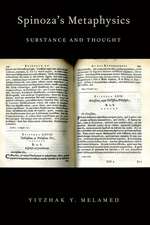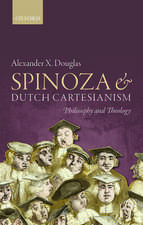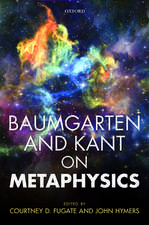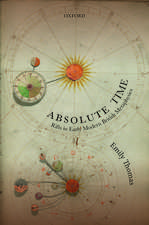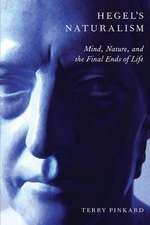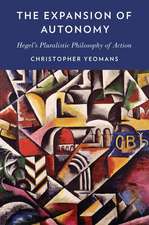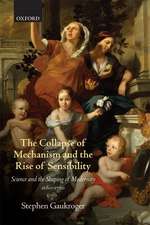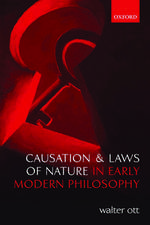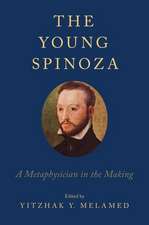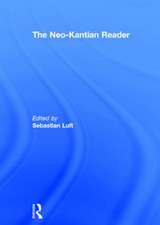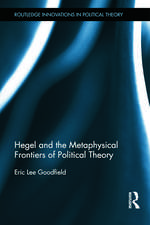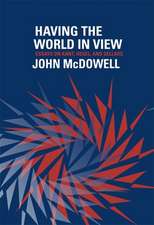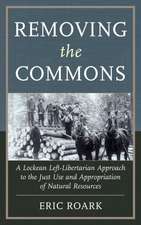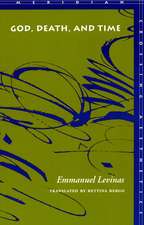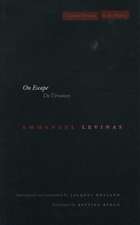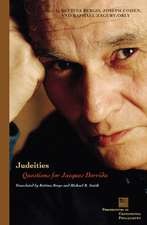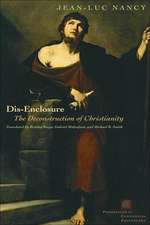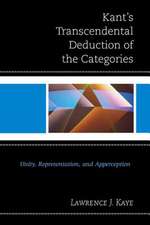Anxiety: A Philosophical History
Autor Bettina Bergoen Limba Engleză Hardback – 12 ian 2021
Preț: 330.02 lei
Preț vechi: 370.84 lei
-11% Nou
Puncte Express: 495
Preț estimativ în valută:
63.15€ • 67.53$ • 52.65£
63.15€ • 67.53$ • 52.65£
Carte tipărită la comandă
Livrare economică 07-14 aprilie
Preluare comenzi: 021 569.72.76
Specificații
ISBN-13: 9780197539712
ISBN-10: 0197539718
Pagini: 534
Dimensiuni: 165 x 236 x 43 mm
Greutate: 0.91 kg
Editura: Oxford University Press
Colecția OUP USA
Locul publicării:New York, United States
ISBN-10: 0197539718
Pagini: 534
Dimensiuni: 165 x 236 x 43 mm
Greutate: 0.91 kg
Editura: Oxford University Press
Colecția OUP USA
Locul publicării:New York, United States
Recenzii
...what stands out is [Bergo's] capacity to inflect familiar material with uncanny resonances, without much editorial prodding. The Nietzsche we encounter here, for example, is one concerned with 'two pairs of anxiety': embodied pathos and reactive resentment, as well as mourning the death of God and rendering it the 'ultimate transvaluation' through eternal recurrence. The result is a demystified, non-reductive picture of Nietzsche that is theologically unavoidable and plausibly resonant with current conceptions of emergent consciousness. Later in the book, it is refreshing to see Husserl's work on time consciousness and passive synthesis described so clearly and with such a suggestive eye toward the theme of affect. In Bergo's account, we get a convincing sense both of his setting a 'new formal groundwork for psychology,' and of his role as a target for subsequent deformalizing dismantlings.
Bergo (Univ. of Montreal) offers a wide-ranging but by no means superficial examination of the present-day notion of anxiety and its philosophical context. The philosophical story can be said to have begun with Kant's transcendental project as a response to the inadequacies of both empiricism and rationalism, but it travels through many major European philosophers of the 19th and 20th centuries. Bergo shows the sometimes surprising connections between and among Kant, Fichte, Schelling, Hegel, Schopenhauer, Kierkegaard, Nietzsche, Husserl, Heidegger, Levinas, and other thinkers. There are also several side trips to scientists such as Darwin, Ekman, and Freud—as anxiety itself turns out to lie somewhere between human cognition and human emotion, between mind and body. Anxiety might at first appear to play a minor role in philosophy, but Bergo shows that it can be an important key....Summing Up: Recommended. Lower-division undergraduates through faculty and professionals.
This is a remarkably detailed study, and unlike many of the large and avowed exhaustive histories of philosophy, this one makes no claim to such. Bettina Bergo does something wonderfully creative. Instead of advancing a genealogy of anxiety, she makes a double move of examining the, in fact, fear of power, the desire for liberty without responsibility, and in doing so examines the conundrums of evasion. The work is valuable as a performance of its own philosophical concerns, and for scholars interested in fresh readings of canonical figures of Euromodern continental philosophy. This is a beautifully written, extraordinarily well-researched work that should generate a stir not only among scholars researching on the history of Euromodern philosophy, but also those interested in a rich understanding of subjectivity beyond pronouncements of eradication of its mark--in a word, 'the' subject.'
Bergo (Univ. of Montreal) offers a wide-ranging but by no means superficial examination of the present-day notion of anxiety and its philosophical context. The philosophical story can be said to have begun with Kant's transcendental project as a response to the inadequacies of both empiricism and rationalism, but it travels through many major European philosophers of the 19th and 20th centuries. Bergo shows the sometimes surprising connections between and among Kant, Fichte, Schelling, Hegel, Schopenhauer, Kierkegaard, Nietzsche, Husserl, Heidegger, Levinas, and other thinkers. There are also several side trips to scientists such as Darwin, Ekman, and Freud—as anxiety itself turns out to lie somewhere between human cognition and human emotion, between mind and body. Anxiety might at first appear to play a minor role in philosophy, but Bergo shows that it can be an important key....Summing Up: Recommended. Lower-division undergraduates through faculty and professionals.
This is a remarkably detailed study, and unlike many of the large and avowed exhaustive histories of philosophy, this one makes no claim to such. Bettina Bergo does something wonderfully creative. Instead of advancing a genealogy of anxiety, she makes a double move of examining the, in fact, fear of power, the desire for liberty without responsibility, and in doing so examines the conundrums of evasion. The work is valuable as a performance of its own philosophical concerns, and for scholars interested in fresh readings of canonical figures of Euromodern continental philosophy. This is a beautifully written, extraordinarily well-researched work that should generate a stir not only among scholars researching on the history of Euromodern philosophy, but also those interested in a rich understanding of subjectivity beyond pronouncements of eradication of its mark--in a word, 'the' subject.'
Notă biografică
Bettina Bergo is Professor of Philosophy at the Université de Montréal, and author of Levinas between Ethics and Politics (Springer, 1999) and co-editor of several collections, including Levinas and Nietzsche: After the Death of a Certain God (Columbia University Press, 2008). She has translated works from Emmanuel Levinas, Marlène Zarader, and Didier Franck, among others. She is the author of numerous articles on phenomenology, psychoanalysis, the history of psychology, and in critical race theory.


